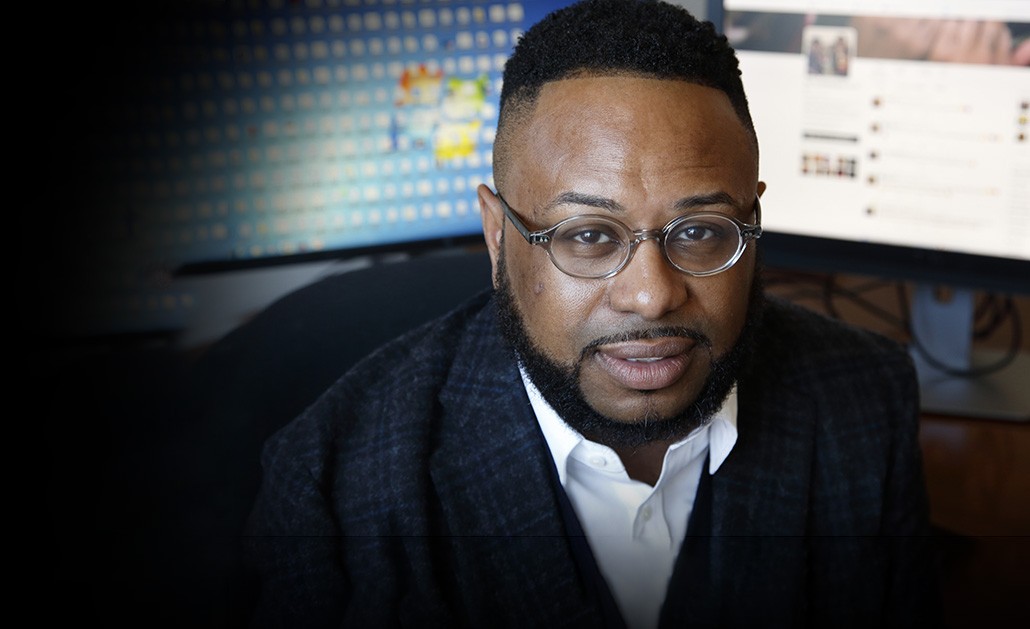“We’re trying to understand loss and trauma within a social media context and develop interventions that provide young people with support as they’re leveraging these tools to get help. ”
Patton’s research on Internet banging has appeared in numerous media outlets, including VICE, Nature, and The New York Times. It was cited in an amici curiae brief submitted to the United States Supreme Court in Elonis v. United States, which examined how threats are interpreted on social media.
Patton has published dozens of articles in peer-reviewed publications, among them the Journal of the Society for Social Work and Research, New Media and Society, and The Journal of Men’s Studies. One recent paper, published in Children and Youth Services Review, found that adolescents are acutely aware that social media features, such as comments and live video, have the power to turn online conflict into offline fights.
“Our findings underscore that adolescents engaged in social media threats often do not go online with the intention to fight,” Patton and his coauthors wrote. “Rather, adolescents expressed keen awareness that social media intensifies interpersonal slights, and specifically identified video streaming and comments as social media features that intensify social media threats, increasing the likelihood of offline violence.”
Patton has received more than a dozen prestigious honors and fellowships during his career, including the 2018 Deborah K. Padgett Early Career Achievement Award from the Society for Social Work and Research. He won the award, according to SSWR, “in recognition of his notable influence on understanding the links between traditional forms of gang violence and threatening social media communication and his noteworthy contributions to advance the social work profession.”
In addition to his professorship at Columbia, Patton serves as senior associate dean for academic affairs and curriculum innovation at the university’s School of Social Work. He is the associate director of diversity, equity, and inclusion for the university’s Data Science Institute and a faculty affiliate of its Social Intervention Group. Before joining the faculty at Columbia in 2015, he served as an assistant professor at the University of Michigan School of Social Work and School of Information.
Patton holds a bachelor’s degree in anthropology and political science from the University of North Carolina at Greensboro, a master’s in social work from the University of Michigan, and a doctorate in social service administration from the University of Chicago.
The diploma ceremony for the School of Social Work will start at approximately noon. Several soon-to-be-graduates will be involved in the festivities. Mai Kim Pham, MSW’22, will deliver the invocation and Samira Al-Ghuiyy Bell, MSW’22, will give the student address. Jason Lawrence Madden, MSW’22, and Kimberly Hokanson, PhD’22, will serve as the degree representatives. Seating for guests on the Lower Campus Lawn is first come, first served. People who are unable to attend the event can livestream the ceremony on the University’s Commencement page.



